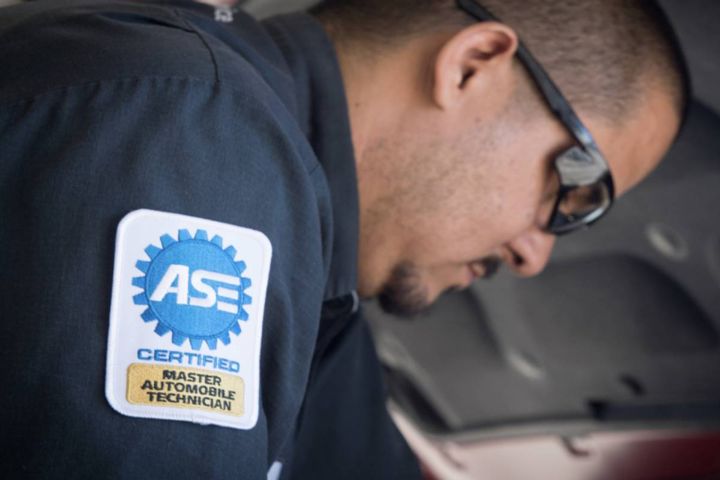To work at Hyatt’s shop, technicians must have master ASE certifications in both light- and heavy-duty vehicles, as well as a high-level knowledge of computers.
What’s the difference between a mechanic and a technician? John Hyatt, operations manager for the City of Dublin, Ohio, said technicians must know much more about the technology needed to run the fleet of the future.
“With today’s equipment and vehicles, technicians have to know more than how to use a wrench; they have to be computer savvy for diagnostics,” he said.
To work at Hyatt’s shop, technicians must have master ASE certifications in both light- and heavy-duty vehicles, as well as a high-level knowledge of computers. He acknowledged the difficulties that come with finding such a person, and said increasing pay is one factor that can help — but it’s not the only thing that entices talent.
“We pay for them to earn their ASE certifications. We pay them for their time by making sure they go for the testing during work hours,” he said.
This helps technicians realize that management cares about their professional evolution. Technicians shouldn’t get stuck with only one specialty, and as a mentor, the fleet manager must act to foster their growth.
“Variety is also something that could be a selling point to try and get more people interested. They enjoy the fact they get to do something different every day,” Hyatt said.
Reinforcing Strengths and Nurturing Weaknesses
It takes years to learn the strengths and weaknesses of each technician; fleet managers must spend time to truly understand those they work with as individuals.
Part of being a good manager is placing technicians where they will excel and then remedying any shortcomings with further education instead of letting them flounder or never giving them a chance to better themselves.

“Everybody here has their niche, and I know what it is. Therefore, I’m not going to put Mike on something Bobby’s better at, or Bobby on something that Andy’s better at. When I schedule the work, I’m going to make sure they get what they’re comfortable with,” Hyatt said.
Observing your team and speaking to them as individuals will assist in helping them grow where they need to. Hyatt said if, for instance, he can tell someone is struggling with welding, he’ll send them to a welding school and pay for it.
“You try to get them training on their weaknesses, but don’t put them in a position where they are uncomfortable,” he said.
The City of Dublin operates 61 compressed natural gas (CNG) vehicles, and Hyatt sent two of his best workers to Oklahoma for training for a week together so they could bolster their strengths. When they came back, they were able to help those who found working with CNG vehicles to be a weakness of theirs.
“You spend the money to train a few, and then allow them to pass that knowledge on to others,” he explained.
by Lexi Tucker
Source: https://www.government-fleet.com
CUT COTS OF THE FLEET WITH OUR AUDIT PROGRAM
The audit is a key tool to know the overall status and provide the analysis, the assessment, the advice, the suggestions and the actions to take in order to cut costs and increase the efficiency and efficacy of the fleet. We propose the following fleet management audit.




